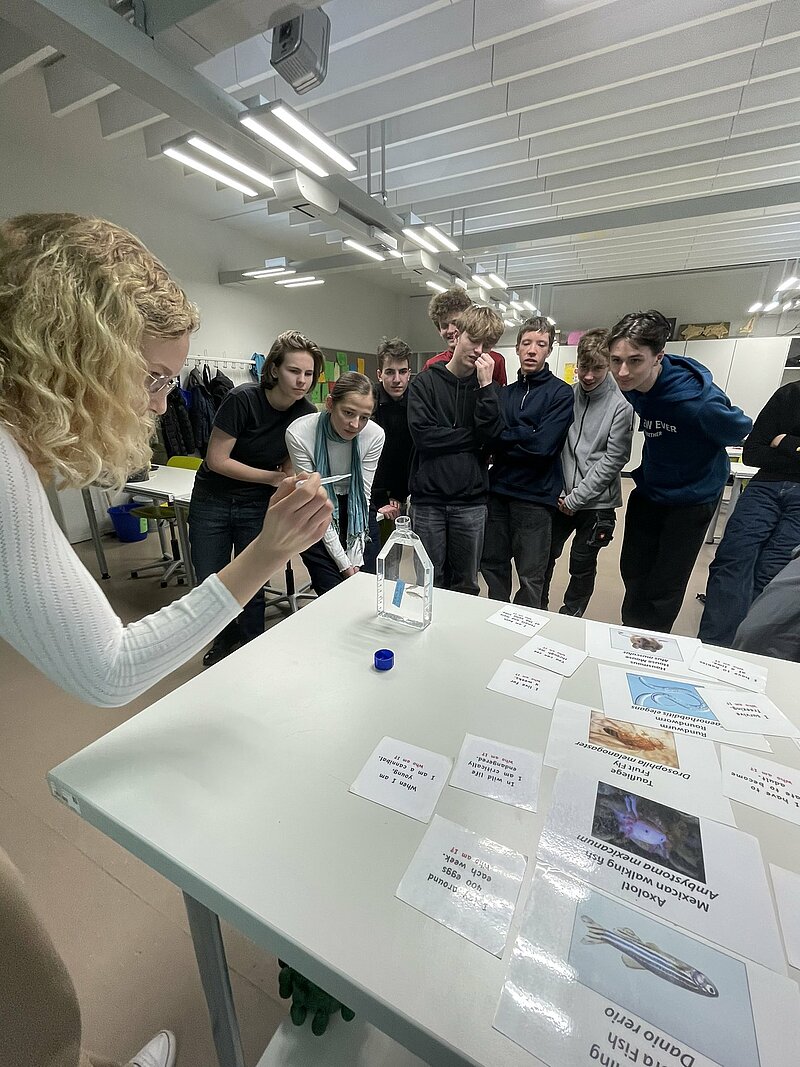In the research community of Dresden, a remarkable initiative is bridging the gap between the world of science and the eager minds of curious students. "Science goes to school," is an project spearheaded by the Dresden International PhD Program (DIPP),and is not merely an educational endeavor, but a transformative experience for both educators and students alike. The initiative has positively impacted more than 30 schools, with several receiving repeated visits, and more are eager to join each year. Founded over 13 years ago, the project has expanded continously to include volunteers from numerous countries and institutes.
The DIPP network comprises of researchers from the Dresden International Graduate School for Biomedicine and Bioengineering (DIGS-BB) and International Max Planck Research School (IMPRS). Numerous institutions from the research community at the Johannstadt campus are involved, including the Cluster of Excellence Physics of Life (PoL), the Max Planck Institute of Molecular Cell Biology and Genetics (MPI-CBG), and the Center for Molecular and Cellular Bioengineering (CMCB) among many others. Given the diversity of researchers in Dresden, the DIPP School Project is a highly international initiative, with around 30 different nationalities represented in the programme.
The core of "Science goes to school" lies in its workshops meticulously crafted for students aged 14 to 18, encompassing a spectrum of scientific topics (including biophysics, model organisms, DNA fingerprinting, and lipids). These workshops are delivered in English by a group of volunteer PhD students and postdocs from the Johannstadt campus. These monthly sessions serve as a gateway to ignite passion for science, and also cultivate an appreciation for the diverse cultures and international presence in Dresden, embodying the dual objectives of the project.
One student volunteer is Alison Kickuth, who is a PhD student at the MPI-CBG and PoL, who spoke to us about her experience working with the project. According to Alison: “for presenting science, the school students are the best audience, because they are the ones that ask the best, and sometimes hardest questions!”. The sessions, which each compose 120 minutes of hands-on activities, are a testament to the project's commitment to immersive learning. Through experiments such as DNA extraction from bananas, and exploring the intricacies of different model organisms, students are not mere spectators but active participants, experiencing methods used by researchers in a typical laboratory setting. These workshops transcend traditional classroom boundaries, and instill a sense of wonder and empowerment in the next generation of scientists. “Science goes to school is a really rewarding project to participate in”, Alison reflects. “It surprises me every time to see how the pupils engage in our explanations. They are incredibly interested and surprisingly knowledgeable”.
A fundamental problem often faced by researchers is how to communicate science to younger generations. The project “Science goes to school” is providing an excellent solution to this question over the past decade and more, changing the minds of budding scientists, one classroom at a time.
_______
Are you interested in sharing your passion for science with young students? “Science goes to school” is always looking for new volunteers! To learn more about this initiative or to get involved, visit the DIPP School Project website.
